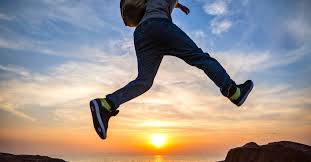
So here's what I'm noticing this week. Everyone is internalizing that we're in this pandemic for the long haul. Covid is not going away in just a few weeks. For the first few weeks people were busy moving their work and children home and dealing with all of the learning curves and decision making that comprised that shift. The massive number of changes included parenting issues, zoom meetings, schooling and how to stay connected to friends and family while living apart. In the midst of that level of crisis some people shift into a mode of 'must do is a good thing' vs. collapsing into their feelings or freezing. Now it seems, the focus has shifted to fear about how long this pandemic will go on for, the grief and loss of 'normal' and wondering how seriously the economy will be impacted by all of the losses and change. We've lost our normal. And there are a huge number of losses within the loss of 'normal'. Believe it or not, even having to shop at a social distance is a loss of the normal we were used to. At a deep subconscious level we are changing the boundary re: proximity of friends vs. family vs strangers in our culture. We are redefining these boundaries and having to integrate a feeling of being loved in ways that are different than hugging and touching or coming closer than 6' apart.
It's important to understand that this is a lot of information for your brain to be synthesizing as we go about our daily lives. It looks on the surface like people aren't doing much because we are mostly staying home and are social distancing if we need to go out for things. However, EVERYTHING from how we shop at the grocery store and the hardware store to how we visit with friends and family, to how we work is different. Our rhythms are different. You might remember, if you've travelled abroad, having to learn how to flush toilets or use public transit in ways that are different from here. It's the same principal. It's more learning than we're used to as adults and it's learning that we didn't choose and comes at a time when we are feeling collectively more powerless than we had been. So we are developing what is called new 'movement signatures'. The new ways of behaving have to encode themselves at a kinesthetic level before it becomes less stressful for your brain. Think about having a conversation when you are cooking dinner in your home vs if you try to have that same conversation in a new apartment or a rented cottage. You will have to focus more and think harder to remember or find where everything is. That is what we are all doing in small ways about how the processes about everything are changing. So that is why people are generally not functioning to their optimum. Give yourself grace and know that NO ONE is functioning to their max right now. And it will get better. Your brain has something called 'neuroplasticity' and is capable of learning and adapting throughout your lifetime. You will notice as the weeks go on how your brain is shifting and integrating the changes. If you want a giggle, here's a funny video that explains this concept:
Getting smarter everyday-bike:
https://youtu.be/MFzDaBzBlL0
So that's what's happening to our brains these days. Now, emotionally, people are struggling with grief and loss; frustration about being cooped up with family; not being able to see their friends; anger that they are powerless around so much of this; and worry about the ways that this will impact on them longterm. And here's the thing.....we aren't so good as a culture about 'feeling our feelings' and knowing how to have conversations about them in a healthy way. We are a fairly illiterate society at a feeling level. Most people report on their feelings and just say that they are 'fine', 'frustrated', 'sad', 'angry' or 'pissed' . It might be helpful if you find ways for family members to talk about the impact Covid is having on each of you by 'externalizing the problem'. It's like Covid has moved into everyone's family system and plunked itself in the middle of all of the dynamics and taken up more space than anything or anyone else! So find an object that can represent Covid and pass the object around the dinner table (and a feelings sheet if you have people in the family that have a hard time naming what they are feeling)

Then ask the question "How is Covid impacting on you today?" Talking about it and letting everyone have their varied experiences of it will help it not come out in other dynamics. And you might use this as a learning opportunity for you and your kids to express those feelings in a healthy way. It's good for everyone to learn that they will have feelings their whole lives. The skill is either learning to calm them down or express them without hurting themselves, someone else or damaging property. This can be a time that you learn as a family how to name what you are feeling and express those feelings in a healthy ways.
Here is a website that has an easy to follow approach to teaching feelings to kids:
https://www.verywellfamily.com/how-to-teach-kids-about-feelings-1095012
And if you want to listen to an excellent podcast about having permission to feel and how it will improve our culture as a whole, including how we run businesses, then have a listen to Brene Brown's interview with Dr Marc Brackett, Director of the Yale Centre for Emotional Literacy and Professor in the Child Study Center at Yale University.
https://brenebrown.com/podcast/dr-marc-brackett-and-brene-on-permission-to-feel/
And finally, I think we all need to have a faith. And I'm not talking about religion, although faith can include religion too.

The
faith I'm talking about is " deep-rooted in the expectation of good things to come. It goes beyond hope. While much of hope lives in the mind,
faith is steeped in the heart and the spirit. ... While life can be hard at the best of times,
faith is the knowledge, deep down inside, that things will get better."
I have
faith that we will come together. That we will dig deep and be resilient. And that we will get through this.